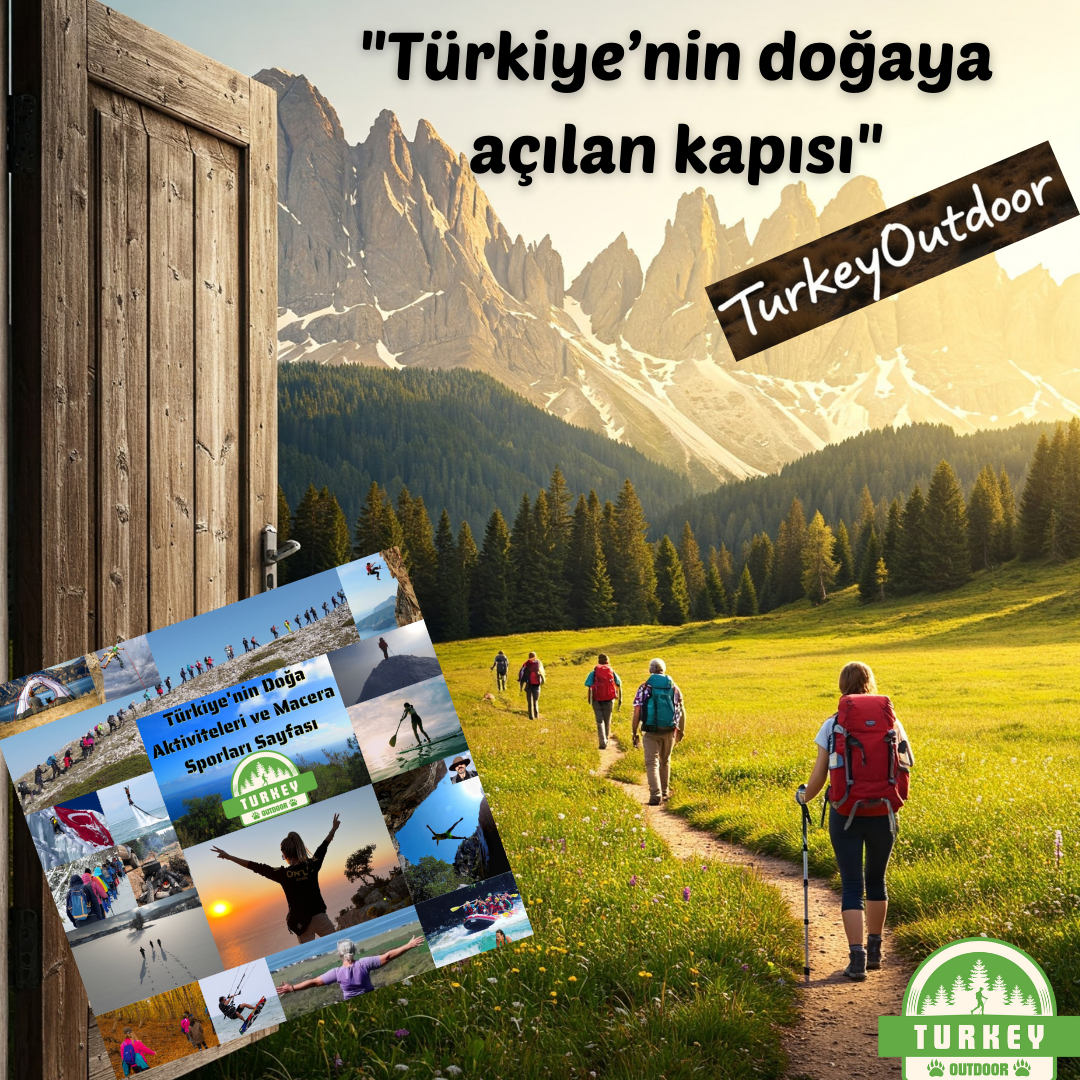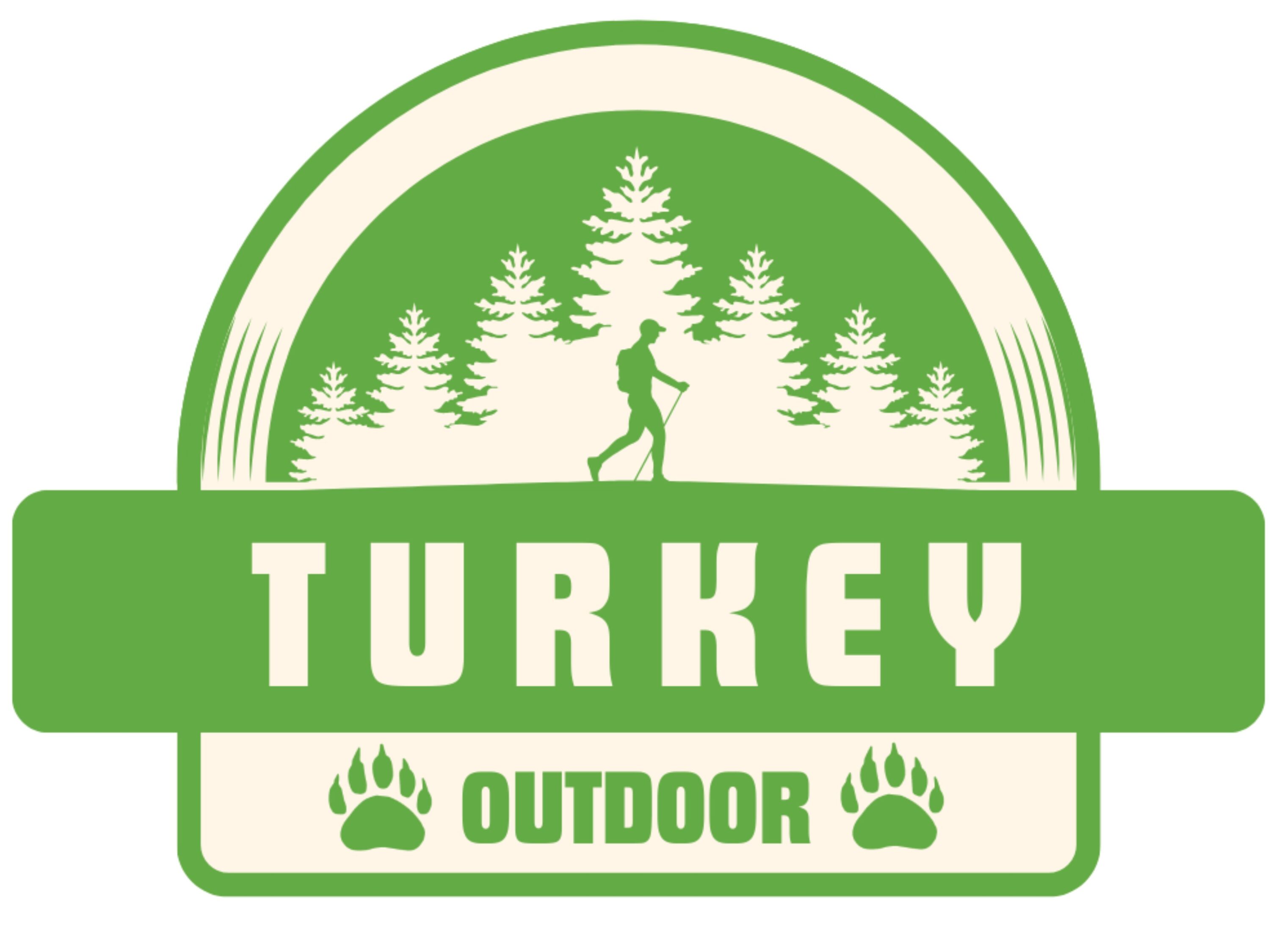Sustainability and Green Steps in Nature

Turkey's gateway to nature, the Nature Activities & Adventure Sports Page , is Turkey's most up-to-date and comprehensive information source for anyone interested in nature sports. 🏕️⛰️ It's a comprehensive platform offering nature enthusiasts across Turkey the most up-to-date events and guides, from camping sites and hiking routes to mountaineering and extreme sports.

The page, which keeps its finger on the pulse of the outdoor world with its powerful communication network that brings together nature lovers, also offers an indispensable resource for those exploring Türkiye with its province-specific travel guides. The platform aims to raise environmental awareness and prioritizes sustainability and respect for biodiversity while engaging in outdoor activities. 🌿
Nature is humanity's most precious treasure and the most important legacy we can leave to future generations. However, modern lifestyles' consumer habits, climate change, and environmental pollution are rapidly depleting this treasure. This is precisely where the concept of sustainability emerges as a philosophy of life that aims to establish a balance between humanity and nature.
Sustainability is defined as "meeting the needs of the present without compromising the ability of future generations to meet their own needs." This concept was first formally introduced in the Brundtland Report in 1987 and has since become a global movement.
Sustainability awareness has increased significantly in Türkiye over the last 10 years:
- The use of environmentally friendly products increased by 45%
- Sustainable tourism projects grew by 300%
- Recycling awareness increased by 60%
- The number of nature conservation volunteers increased fivefold
Basic Principles:
- Leave it as you found it in nature
- Never leave your garbage in nature
- Only your footprints, only your photos remain
- Never disturb wildlife
Practical Applications:
- Carry a garbage bag with you
- Do not leave even organic waste in nature
- Do not use soap or shampoo in natural areas.
- Choose a camping stove instead of a campfire
Smart Travel Options:
- Choose public transport
- Use an electric or hybrid vehicle
- Choose environmentally friendly modes of transportation like cycling and walking
- For longer distances, try train travel
Carbon Footprint Calculation:
- Reduce your air travel
- Explore local destinations
- Reduce the need for travel with virtual meetings
- Support carbon neutral projects
Water Saving Methods:
- Shorten your shower time (no more than 5 minutes)
- Turn off the tap while brushing your teeth
- Install rainwater harvesting systems
- Have water leaks repaired immediately
Water Conservation in Nature:
- Camp at least 60 meters away from water sources
- Do not pollute natural water resources
- Keep non-biodegradable products out of water sources
- Participate in local water resource protection projects
Energy Savings at Home:
- Switch to LED lighting systems
- Use energy-efficient white goods
- Install solar energy systems
- Optimize your heating with smart thermostats
Energy Use in Nature:
- Use solar chargers
- Choose rechargeable batteries
- Use solar-powered lanterns for camping lighting
- Try portable devices powered by wind energy
Local and Seasonal Nutrition:
- Shop from local producers
- Consume seasonal fruits and vegetables
- Choose organic and natural products
- Prevent food waste
Sustainable Nutrition in Nature:
- Shop at local markets
- Avoid overpacking
- Use reusable storage containers
- Collect edible plants grown in nature consciously
Waste Management at Home:
- Establish source separation systems
- Recycle organic waste by composting
- Eliminate single-use plastics from your life
- Embrace a repair-recovery culture
Waste Management in Nature:
- Take back all your waste
- Organize “garbage collection drives”
- Use biodegradable products
- Support local recycling systems
Recognizing Local Ecosystems:
- Learn the endemic species of your region
- Observe wildlife but do not disturb it
- Respect natural habitats
- Learn about invasive species
Conservation Efforts:
- Volunteer for local conservation projects
- Participate in biodiversity inventory studies
- Become a member of nature conservation associations
- Support campaigns to protect endangered species
Being a Conscious Consumer:
- Choose quality and long-lasting products
- Focus on second-hand and vintage items
- Support local producers and small businesses
- Avoid products with excessive packaging
Outdoor Equipment Selection:
- Choose equipment made from environmentally friendly materials
- Choose modular and repairable products
- Participate in equipment sharing systems
- Donate or swap unused equipment
Personal Development:
- Get sustainability training
- Improve your nature literacy
- Learn environmentally friendly practices
- Learn sustainable living skills
Social Impact:
- Raise awareness on social media
- Organize local events
- Provide environmental education in schools
- Start sustainability projects in your neighborhood
Green Technologies:
- Use environmentally friendly practices
- Choose energy-efficient appliances
- Install smart home systems
- Support sustainable technology start-ups
Nature Technologies:
- Environmental monitoring applications
- Sustainable agricultural technologies
- Renewable energy solutions
- Waste management systems
- Goal : Achieving zero waste in villages
- Implementation : Full implementation in 50 villages
- Result : 85% reduction in waste amount
- Gain : 10,000 tons of carbon emissions prevented annually
- Goal : To raise children's awareness of nature
- Application : 100 nature schools in 25 provinces
- Result : 50,000 children reached
- Gain : Environmentally friendly generations are growing
- Goal : To make nature tourism sustainable
- Application : 150 businesses have been certified
- Result : Increased income and environmental protection
- Gain : 100 million TL contribution to the local economy
- Transportation : Public transportation, cycling, walking
- Energy : Renewable energy sources
- Nutrition : Local and seasonal foods
- Consumption : Conscious shopping, repair culture
- Savings : Water-saving devices
- Reuse : Grey water systems
- Protection : Keeping water resources clean
- Dissemination : Water literacy training
- Insulation : Building insulation and energy efficiency
- Technology : Energy-efficient appliances
- Behavior : Energy saving habits
- Investment : Renewable energy systems
- Get sustainability training
- Adopt environmentally friendly habits
- Learn about local environmental issues
- Switch to sustainable modes of transportation
- Implement energy efficiency measures
- Establish a waste management system
- Volunteer for local projects
- Launch environmental protection campaigns
- Provide sustainability training
- Develop sustainable business models
- Engage in political participation and advocacy
- Support global solutions
- Carbon footprint tracking
- Water footprint calculation
- Measurement of waste production
- Energy consumption analysis
- Set monthly goals
- Conduct monthly evaluations
- Develop new strategies
- Celebrate successes
Answer : Yes! Each individual's effort creates a significant change overall. For example:
- One person can save 1 ton of carbon per year
- A family can save 50,000 liters of water per year
- 1 community can recycle 10 tons of waste per year
Answer : It may require initial investments, but:
- Provides savings in the long run
- Reduces healthcare costs
- Improves quality of life
- Reduces future costs
Sustainability is not a trend, it's a necessity. Every green step we take in nature is a beacon of hope for future generations. Remember:
- Today's choices shape tomorrow's world
- Small changes make big differences
- Nature does not belong to us, we belong to nature
- Sustainability is a way of life
Take action! Every small change you start today will contribute to a greener, cleaner, and more livable world tomorrow.
Remember: We didn't inherit nature from our ancestors; we borrowed it from our children. It's our responsibility to return this loan in the best way we can.
Come on, let's act together! Take a step towards a green future today, make a difference tomorrow.
Remember: Personal safety and environmental protection are your responsibility in all outdoor activities. Always be kind to nature, don't leave trash behind, and comply with current laws.
For detailed safety information, visit our Safety and Responsibility Guide page. For more information on camping and caravanning, you can also check out our Camping Guide page. We wish you enjoyable and safe outdoor adventures!
turkeyoutdoor





